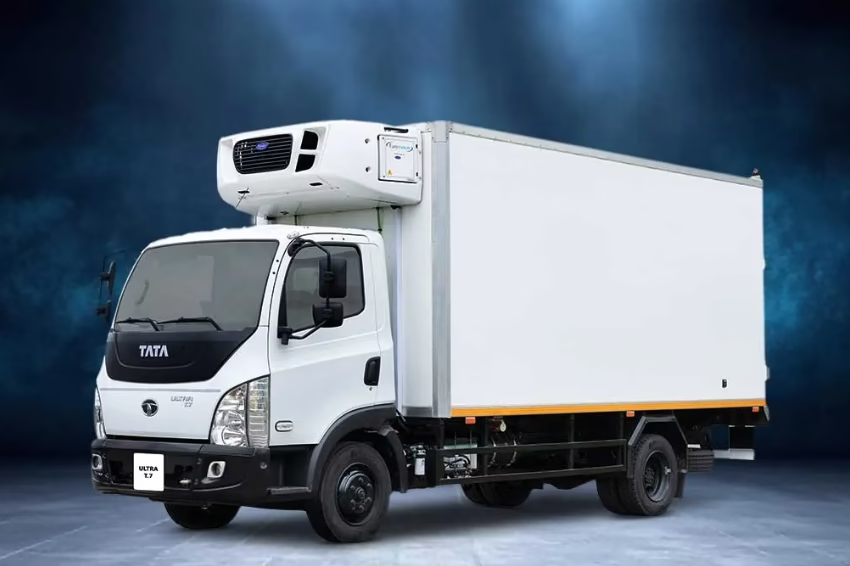Find out the exact difference between shipping line and freight forwarder to make shipping hassle-free and affordable.
You must have heard the terms freight forwarders, shipping lines, cargo lines, airlines and many other terms related to shipping. It’s a general question for many shippers: “Why do I need a freight forwarder? Can I work directly with the shipping lines?”
The answer to this question is not as simple as it seems to be as both the shipping companies and freight forwarders focus on delivering goods from one point to the another. So, you must be wondering, “What’s the difference?”
The answer lies in the mechanism or approach they take to function properly. The delivery process also plays a major role to show the difference between the two.
The freight forwarders are mainly the logistic companies, whose main service is to transfer the goods by arranging shipments for the individuals or companies or the carrier themselves. Very often, they are considered as a link between organisations and individuals, who need to ship the goods and carriers assisting along the way to ensure that no logistical hiccups occur.
The freight forwarding companies work in collaboration with many other associated transportation companies to deliver goods to its final destination. The main focus of these companies is to create a seamless plan to make their businesses reach out to their specific customers thereby increasing the sales.
They generally deal with the multinational deliveries. They are best suited for the business, which needs to deliver a wide range of product.
The term shipping refers to the original process of transporting merchandise cargo and goods. Though the term ‘shipping’ was earlier used to describe the transport by sea, now it means transport by trucks, planes, and trains also.
The freight forwarders do export or import the goods to their customer with the help of airlines, shipping lines, warehouses, truck companies, customs brokers, and other logistics parties. They make a special agreement with these service providers.
Role of A Freight Forwarder & A Shipping Company!
Professional freight forwarders are responsible for arranging shipments for companies, individuals, or may also act as a carrier themselves. They act as a link between organisations and individuals that need to ship carriers and goods.
They are known to provide extra services, which includes:
- Completing the required paperwork
- Advising on packing
- Offering insurance coverage
- Custom clearing services
A shipping company is an organisation or individual that handles the transportation of cargo with the customers’ interest in mind. They are responsible for overseeing the tasks that include:
- Crew transfer on a ship
- Custom clearance
- Waste declaration
- Dispatching of vessels
Difference Between A Freight Forwarder and A Shipping Agent
Varieties of Services Offered
A freight forwarder is known to provide services that very often are outside the scope of a shipping agent. For example, it often sees the cargo through the entire from door to door sea freight services. The shipping agents are concerned with their work during the process from the time when cargo or goods are consolidated to the time when they are deconsolidated.
Freight forwarders are known to provide multi-modal transportation to facilitate the service whereas the shipping line service is renowned for specializing in a certain mode of transportation. It can be via ship or by other means.
Vessel Ownership
The freight forwarders sub-leases the space in the ship to carry some containers. A forwarder does not have their own shipping vessel as such but they work closely with the shipping companies that own such vessels. They act as an intermediary between the shipping line and their customers and other business owners because they consolidate the shipments of different companies into one container.
Otherwise, it would be impossible to ship small loads of cargo at affordable prices because they would have to pay the shipping line for the full container. The same thing applies to airline also though airlines do not offer containers. They just offer space in the cargo hold. They provide a better rate to the freight forwarder that ships the greater volumes of goods, thereby passing the savings to you by them.
Service Providers’ Network
The freight forwarding companies sub-contracts other companies for export and import services. They have to keep a relationship not only with the shipping lines but also with truck companies, printing companies, customs brokers, warehouses, and many other businesses that assist them in their shipping services. The freight forwarders offer you with the network of service providers as they are essential for moving your products from origin to the destination.
A shipping line company is only responsible for transporting containers in ships and they cannot provide value-added services, unlike freight forwarders.
Warehouse
A freight forwarder always needs a warehouse or a location for the consolidation of cargo, which is sometimes called as Container Freight Station (CFS). This location is used for:
- Loading or unloading of containers
- Receiving all the importing items and preparing them for distribution
- Receiving and storing export items coming from different companies and consolidate them into one container.
- A shipping line does not require CFS or warehouse space because they are not associated with the consolidation of cargo or goods.
Agreement Between Freight Forwarders & Shipping Lines
Freight forwarders work in collaboration with shipping lines to ensure you with the best deal possible. They negotiate to obtain the special agreements for demurrage, rates, credit terms, detention benefits, and sometimes General Rate Increase (GRI). The negotiation depends not only on the size and demand of the freight forwarders at the export or import locations but also on their global ranking.
One of the most common agreements in the contract for a specific type of shipping rates. Freight forwarding companies consolidate shipments from a number of shipping companies. The shipping lines may offer a specific rate in exchange of the minimum volumes for the freight forwarders as a few months contracts.
The small and medium shippers, who are working in collaboration with freight forwarders is more profitable than going directly to the shipping lines. A shipping company generally does not directly work with small or medium shippers.
Final Thoughts
Proper knowledge of shipping lines and freight forwarding services are necessary to make your goods transport hassle-free. Using the services of professional, experienced, and expert freight forwarders help you the efficient flow of goods across the border.






